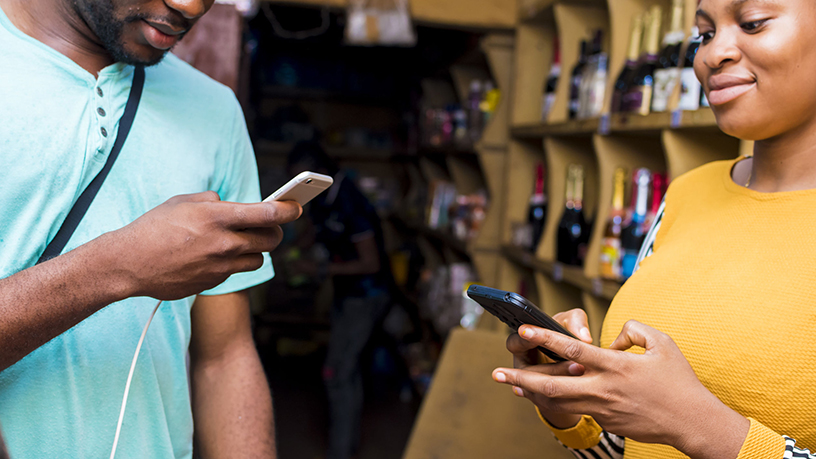|
|
|
|
|
|
|
|
in partnership
with
FLUTTERWAVE |
30.06.2020 |
|
|
|
|
|
Hello there,
Welcome to today’s edition of TC Daily! In today’s digest: Africa’s runways go digital, Kenya moves forward with its plans for digital taxes and India has banned Tik Tok.
Please take a moment to subscribe to our newsletter if this email was forwarded to you. Onto the digest.
|
|
|
|
|
|
|
|
|
Medplus – A wholesale & retail pharmacy that not only sells locally manufactured & imported drugs but also your everyday essentials. Now you can order your COVID-19 essentials & have it delivered to you in one click.
|
|
|
|
|
CORONAVIRUS VS THE FASHION INDUSTRY
|
|
|
Without a global epidemic, the African fashion industry would have begun preparations for the Lagos Fashion and Design Week or the Swahili Fashion Week.
But because of coronavirus and lockdowns, fashion is hardly the first thing on anyone’s mind.
Yet, the fashion industry is an economic pipeline for a range of workers. Think: artisans, stylists, models, makeup and hair stylists. With no runways to strut, it puts the livelihoods of thousands of the industry’s stakeholders in the
balance.
One of the most interesting responses to the disruption of coronavirus is the digital runway.
In May, the Congolese designer, Anifa Mvuemba sent 3D models down a virtual runway to an audience of millions first on the Instagram Live.
Mvuemba is not alone, as designers all over the world are using social media and streaming to unveil new collections.
On Monday, Kay wrote about some of the industry’s responses as well as what fashion events are likely to look like in the coming months.
|
|
|
|
|
|
|
|
|
Kenya is moving ahead with its plan to collect taxes from the digital marketplace.
The East African nation is seeing lower revenue from tourism and remittances as its GDP is expected to plunge to a sluggish 1.5% this year.
It is against this revenue shortfall that the government is making plans to collect taxes from companies which do not have physical offices in the country.
The Kenyan Revenue Authority (KRA) has now created a unit to track revenues from every digital transaction within the country.
According to Techpoint: “the KRA will regard any transaction made through a Kenyan Bank, credit card or SIM card, for a service delivered to an IP address in Kenya as taxable.”
There’s no doubt that Nigeria, another African country with similar plans to take digital taxes will be watching Kenya closely to pick up a few lessons.
|
|
|
|
|
|
|
In Kenya, Stimaboda, the electric motorcycle taxi company has launched. The startup will be hoping to convince moto-taxi drivers in Kenya to make a switch to electric motorcycles.
One obvious benefit will be lower fuel costs with Stima providing charging stations for the drivers. There will also be some environmental benefits such as reducing CO2 emissions in the country.
Read all about it here.
|
|
|
|
|
|
|
One of the more challenging aspects of dealing with COVID-19 is the prevalence of fake news about the pandemic. Social media platforms like Twitter have taken action to try to curb the spread of misinformation.
Now BBC Africa is launching a COVID-19 misinformation hub, a searchable library of fact-checks.
The library will debunk popular myths and misinformation about the virus in Africa.
The BBC says that each fact-check receives one of three ratings; false, misleading or no evidence.
You can fact-check popular myths here.
|
|
|
|
|
|
|
In South Africa, MTN has introduced an interesting new feature to its mobile money service, MoMo. The new feature will allow South Africans make online purchases using their MoMo wallets.
This feature will take away the need to input your credit card details while you shop online and is immediately available on over 4,000 websites.
It is an interesting feature which will mean that people without credit or debit cards can shop online. It will also mean that people who are skeptical about sharing their card details now have an alternative way and easy way to pay.
Here’s Techcentral’s take on why this new feature will help drive adoption for MYN’s MoMo.
|
|
|
|
|
|
|
Citing national security concerns, India’s government has banned Tik Tok, UC Browser and 57 other Chinese apps.
While security concerns are the official reason for the ban on these apps, the truth is a little more interesting.
India’s move is the latest in a series of retaliations between India and China after the military of both countries clashed earlier in the month.
While the retaliations are ongoing, the banned apps are still reportedly available on Google’s PlayStore and Apple’s App Store.
|
|
|
|
|
|
|
|
|
Have a productive week
– Olumuyiwa
|
|
|
|
|
Share TC Daily with your friends!
|
|
|
|
|
|
|
Copyright © 2020 Big Cabal Media,
All rights reserved.
You are receiving this email because
you signed up on TechCabal.com
Our mailing address is:
Big Cabal Media
18, Nnobi Street, Animashaun, Surulere, Lagos
Surulere 100001
Nigeria
Add us to your address book
Want to change how you receive these emails? You can
|
|
|






